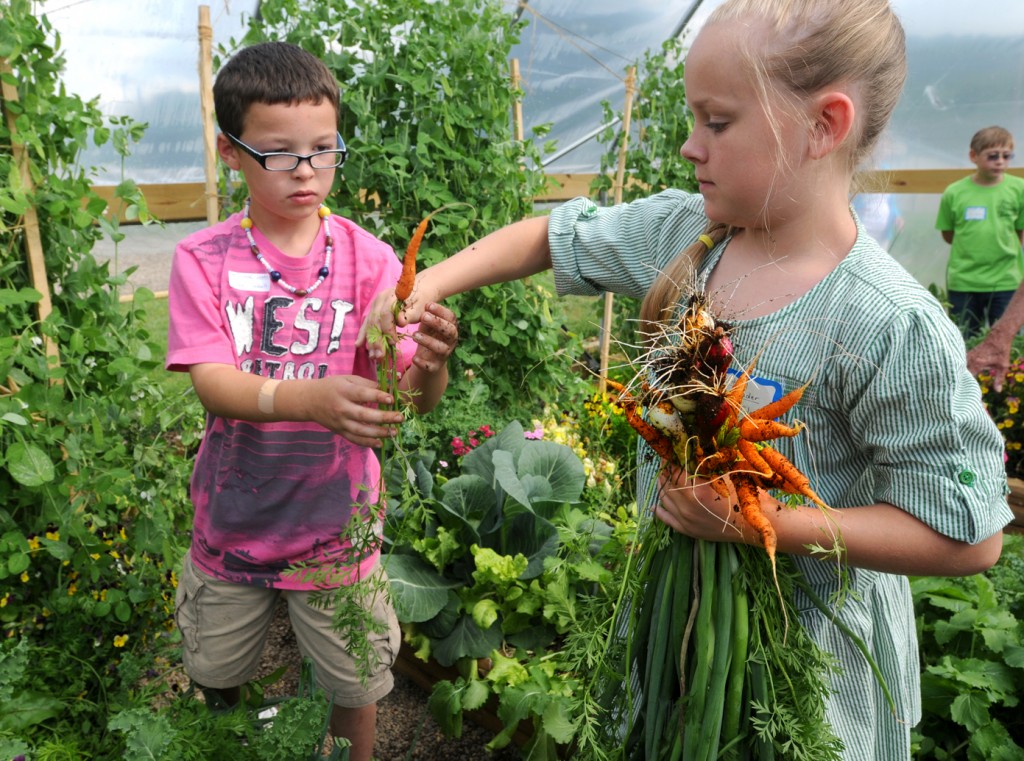West Virginians can now apply to get free seeds to grow this spring.
The “Grow This: West Virginia Garden Challenge” is a project of the WVU Extension Family Nutrition Program that aims to teach West Virginians how to grow their own food.
Zack Harold, the program’s multimedia specialist, said this year’s crops of chives, mesclun lettuce and pickling cucumbers were selected for their ease of growing in containers.
“A lot of our audience live in places where either they don’t have a yard to dig up and grow a garden, or they rent and they, you know, aren’t allowed to do that,” Harold said. “Or maybe they have health needs or are elderly and aren’t able to do that, and container gardening makes things so much easier.”
The program’s theme this year is “Growing for the Good of All.” The theme features a narrative element that follows an astronaut stranded on an alien planet that might feel familiar to first-time gardeners.
“She discovers that the only way that she can grow food on that planet is to grow it in containers,” Harold said. “She’s going to have to improvise containers to use to grow those and she’s going to have to test the soil to make sure it can grow properly.”
For the first time in the program’s eight year history, seeds will not be sent through the mail. Last year, the program mailed seeds to close to 100,000 West Virginians and Harold said the logistics and cost became an issue.
“Sometimes people end up waiting weeks to get their seeds when other people in other parts of the state have already received their seeds, some people don’t get them at all,” he said. “Last year, we had an envelope of seeds returned to us in November that was mailed in February.”
Instead, participants who fill out a short online survey will be asked to pick up their seeds from community distribution partners like local libraries, churches and schools. Harold said provisions are in place for those with mobility issues or limited transportation.
Harold said he hopes the pickup system helps to bring people together for the second year of the “Grow This Throwdown,” a statewide competition that aims to get West Virginians to move more and build community around food. Participants completed a series of challenges, like starting seed libraries and donating seeds to fellow growers, to earn thousands of points for their counties.
“We gave out over $22,000 in grants to three counties that earned the most points,” Harold said. “At the end of the growing season, the counties with the top three point totals will receive grants to complete community improvement projects to make their communities healthier places to live. We’ve heard from a lot of counties already that they’re shooting for first place this year. They’re getting serious.”
Following the space theme, Harold said a “Grow This Academy” will be available on WVU Extension social media accounts, where extension experts will answer questions about common gardening challenges live.
Editor’s note: Zack Harold also reports for the Inside Appalachia Folkways Project.
